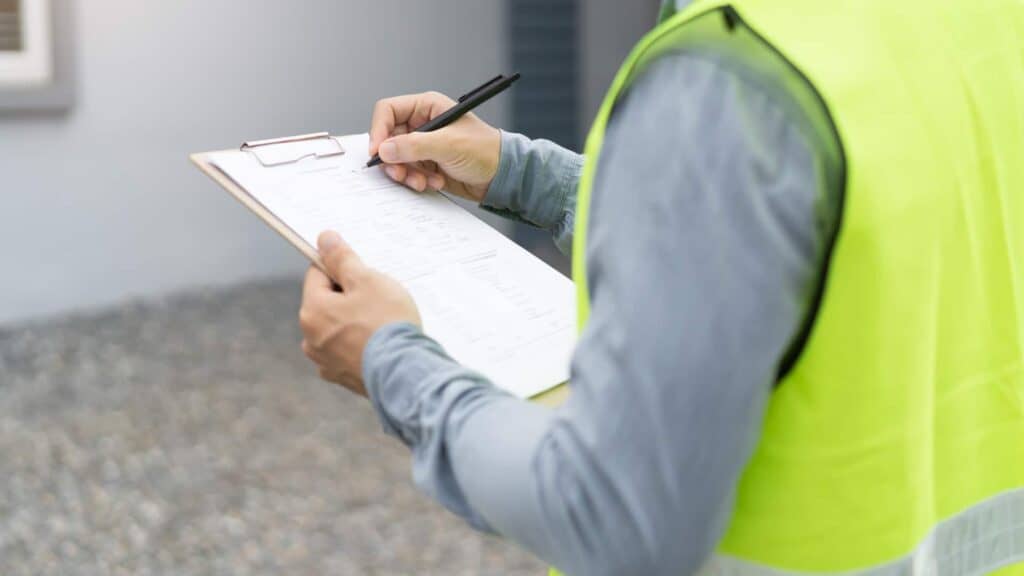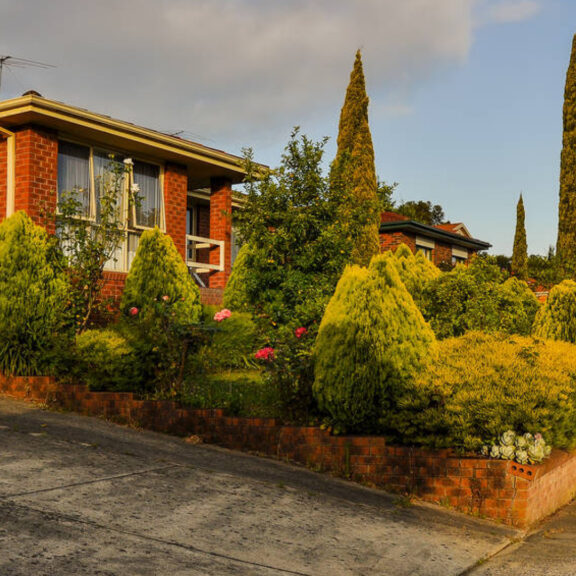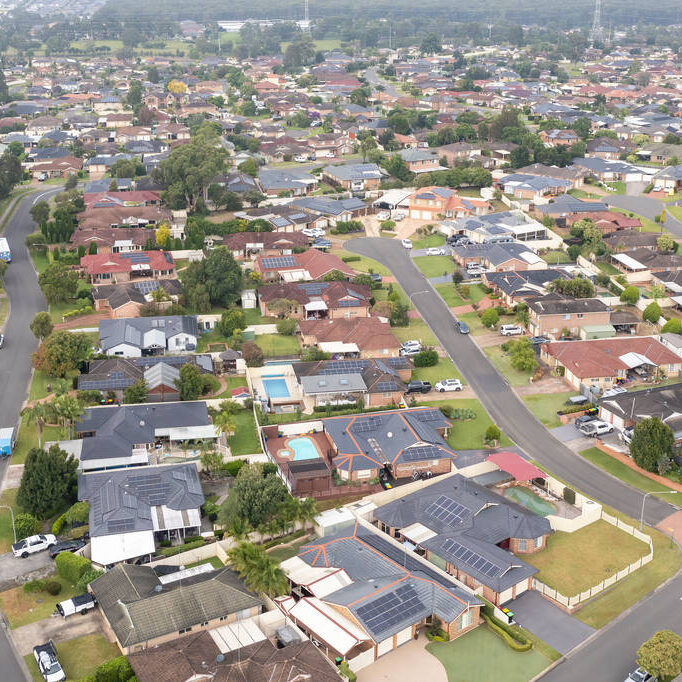You may be chasing more affordable prices, dreaming of a lifestyle change, or spotting investment potential in a different market altogether. No matter the reason, buying property in another state can be pretty tempting. But let’s be clear: buying interstate isn’t quite the same as finding a place down the road. You may have to […]
The Ultimate First-Home Buyer Checklist
Although owning your first property is incredibly exciting, it can also be complicated, time-consuming and a bit stressful. So, today, we’ll make your home-buying experience less confusing, smoother and more convenient. Here’s our ultimate first-home buyer checklist to help you know what to do and expect at every step.
1. Budget for Deposit & Other Upfront Costs
Before scouring listings online or checking out houses and units for sale with a real estate agent, you must clearly understand your financial capacity. Generally, you’ll need a deposit of at least 20% of the property’s value to avoid paying Lenders’ Mortgage Insurance (LMI). But there are government grants you can get to make your first home purchase more affordable; some schemes allow you to use the grant money to contribute to your deposit, while there’s one that enables you to pay only a 5% home loan deposit (Let’s talk more about these grants below!). Still, you must budget adequately for a house deposit to make your property search easier.
Additionally, account for other upfront costs of buying your first home. These may include paying stamp duty (although there are stamp duty concessions you can enjoy as a first-time homebuyer), legal fees, closing fees and building inspections.
Moreover, when setting a budget for your first home purchase, think about the long-term affordability of your home. See if you can manage ongoing costs like mortgage repayments, property maintenance, council rates, and insurance.
2. Start Your Property Search
With a budget in mind, begin your property search by defining what you are looking for in a home. Consider location, property type, size, and proximity to amenities like schools, transport, and shopping centres. Utilise online real estate platforms and engage with local mortgage brokers and real estate agents who can provide insights and updates on listings that fit your criteria. For instance, if you want to buy your first home in Tasmania, reach out to Hobart mortgage brokers like us.
3. Explore Government Grants & Financing Options
While searching for potential properties, you must explore several financing options and government schemes designed to help a new home buyer in Australia enter the property market more easily. Here’s an overview of some key programs and options available:
First Home Guarantee Scheme
Previously known as the First Home Loan Deposit Scheme, this program allows eligible first-time buyers to purchase a home with as little as a 5% deposit without needing to pay LMI. Housing Australia will guarantee up to 15% of the deposit. This government scheme offers 35,000 spots each financial year, so be sure to check your eligibility.
Family Home Guarantee
The Family Home Guarantee enables eligible individuals to purchase a home with a deposit as low as 2%. This scheme aims to support single parents with dependents, regardless of whether they are new home buyers or have previously owned a home. See if you can get one of the 5,000 spots available for this program.
First Home Owner Grant (FHOG)
The FHOG is a one-time grant for those building or buying their first home. The grant amount varies by state and territory but can be as much as $30,000 in places like Tasmania. The grant is tax-free and intended to help cover the upfront costs of purchasing a first home. Read our blog on How the FHOG works to learn more.
Help to Buy Scheme
Set to launch in 2024, the Help to Buy Scheme is designed for eligible buyers to co-purchase a home with the government. Under this scheme, the government will guarantee 30% of the equity for an existing home or 40% for a new home, reducing the amount the buyer needs to finance through a mortgage.
First Home Super Saver (FHSS)
The FHSS scheme allows first-time buyers to save money for their home inside their superannuation fund. Individuals can make voluntary contributions to their super, which they can later withdraw and utilise as a deposit for their first home. Learn more about it on this blog: Can First-Home Buyers Use Their Super for a Deposit?
Regional First Home Buyer Guarantee
This government grant enables eligible first-time buyers to purchase a home in a regional area with as little as a 5% deposit without paying the often costly LMI. Learn about the eligibility requirements, property price caps, application process & other details through our blog: A Quick Guide to Regional First Home Buyer Guarantee.
Low-Deposit First-Home Buyer Loans
Some lenders offer low-deposit home loan options for new home buyers, allowing them to purchase a home with a smaller upfront payment. At Deltos Finance, for instance, we have access to first-home buyer loans that only require a 2% deposit. That’s a great option for first-time buyers struggling to save the standard 20% or at least a 5% loan deposit.
4. Choose the Right Type of Home Loan
Familiarise yourself with the different types of home loans available for first-time buyers. Learn about different home loan structures: fixed-rate, variable-rate, and split loans. Consider what works best for your financial situation and plans.
Also, don’t skip evaluating critical home loan features like redraw facilities and offset accounts, which can offer flexibility and savings over the term of your loan.

5. Dodge the Common Loan Mistakes of First-Home Buyers
When applying for a first-home buyer mortgage in Australia, you should be aware of several common loan mistakes to increase your chances of home loan approval.
Not Doing Enough Research: Failing to research and compare various lenders and their offerings can lead to missing out on better interest rates, lower fees, and more suitable loan features. Look beyond interest rates & consider all aspects of the loan.
Underestimating the Costs: Many first-time buyers overlook the additional upfront costs of purchasing a house in Australia, such as stamp duty, legal fees, building inspections, and moving expenses. These can significantly impact your budget.
Not Getting Pre-Approval: Bidding at auction or making an offer without having pre-approval from a lender is risky. Pre-approval gives you a clear idea of your borrowing capacity. Plus, it makes you a more attractive buyer to sellers.
Not Knowing Your Credit Score: Not knowing your credit score or assuming it’s irrelevant can lead to surprises if your home loan application is declined. So, regularly check your credit report and work on boosting your score before applying.
Applying for Too Many Loans: Submitting multiple loan applications in a short period can negatively impact your credit score. Lenders view this as reckless behaviour, indicating you might be a poor credit risk. So, it’s best to be guided accordingly and apply only for home loans that best suit your financial situation, needs and goals.
Not Determining Eligibility for the First Home Owner Grant: The First Home Owner Grant and other government grants & schemes can provide significant financial assistance. Not checking if you qualify or incorrectly applying can result in missing out on the benefit that’s supposed to make your home purchase more affordable.
Borrowing Beyond Your Budget: One of first-time buyers’ biggest home loan mistakes is borrowing more than they can afford. Just because a bank is willing to lend you a certain amount doesn’t mean you should take it. Consider your comfort level with the repayments and other financial commitments.
Inadequate Documentation Preparation: Incomplete or inaccurate documentation can delay or hinder loan approval. Ensure you have all necessary documents, such as proof of income, bank statements, and tax returns, organised and ready.
6. Secure Loan Pre-Approval
After exploring government schemes and picking the right type of first-home buyer mortgage, the next step is lodging your loan application. Note that securing pre-approval for your home loan is a significant step. This gives you a clear idea of your budget and strengthens your position when making an offer on a house.
Generally, a home loan application can take from four to six weeks. But with a pre-approval, you can speed up the final loan approval and closing process.
7. Seek Expert Guidance
A first-home buyer checklist won’t be complete without reminding you to seek expert guidance. Throughout the home-buying process, you’ll need to consult with several professionals. These include:
- Home Lending Specialist or Mortgage Broker: Speak to this professional to get financial advice and successfully navigate the loan application process.
- Real Estate Agent: If you want to find suitable properties and gain insights into the market, don’t hesitate to engage with a reputable real estate agent.
- Buyer’s Agent or Buyer’s Advocate: Unlike real estate agents who may represent both buyers and sellers, a buyer’s agent or advocate works merely on behalf of the buyer. That can give you an edge when searching for properties or negotiating a sale price.
- Settlement Agent/Conveyancer: You will likely need conveyancers or settlement agents to handle the legal aspects of the property transfer.
8. Be Aware of the Common Misconceptions of Homebuying
This checklist serves as a first-home buyer guide, too. So, we’re here to tell you to be aware of the common misconceptions about buying your first home in Australia, which include:
Needing a 20% Down Payment: Many believe a 20% deposit is required to buy a home. While a 20% deposit can help avoid LMI, it’s possible to purchase a new house with a deposit as low as 5% through various loans & schemes, as discussed above.
Lenders Mortgage Insurance Protects the Buyer: LMI is often misunderstood as protection for the buyer. In reality, LMI protects the lender if the borrower defaults on the home loan. The cost of LMI is typically passed on to the borrower but allows them to purchase sooner with a smaller deposit.
It’s Too Expensive to Buy a Home: While buying a home is a significant financial commitment, government schemes and grants are in place to help Australians purchase their first property, making homeownership more accessible than many people think.
You’re Locked in with Your Lender: Some first-time buyers believe that once they choose a lender for their home loan, they are locked in for the duration of the loan. But here’s the truth: you can refinance your mortgage to take advantage of better rates or terms with another lender.
Lenders Don’t Loan to Sole Traders or Small Business Owners: Sole traders and small business owners can, indeed, get home loans. They may be asked to provide additional documentation to prove their income, but many lenders are willing to work with them.
Renting Is Cheaper Than Buying: This myth overlooks the long-term benefits of homeownership, such as building equity and the potential for property appreciation. While renting may have lower upfront costs, buying a residential property is considered a good investment.
You Can Only Find the Best Deal Through a Real Estate Agent: While real estate agents can offer valuable assistance, buyers should also consider engaging a buyer’s agent or a mortgage broker. These professionals work on behalf of the buyer, not the seller, and can help navigate the property market to find suitable homes, negotiate deals and secure the best home loan terms and rates.
Pre-Approval Guarantees a Home Purchase: Pre-approval is an important step in the home buying process as it gives you an idea of how much you can borrow. However, it is not a guarantee of loan approval. The final loan approval is subject to a full assessment and property valuation. Don’t fret because an experienced mortgage broker can guide you throughout to help close the final approval process.
9. Make an Offer on a House
Once you find a property you like and already have a loan pre-approval, make an offer through your real estate agent. Don’t worry if you’re unsure about how much to offer since your agent can provide guidance based on market conditions and comparable sales in the area.

10. Arrange Property Inspections
Before finalising the home purchase, arrange for a professional building and pest inspection. These inspections can reveal structural problems or pest issues that might not be visible during a regular home inspection. You can tap your real estate agent to connect you to a reputable company to perform these critical inspections.
11. Finalise the Mortgage
Once your offer is accepted and inspections turn out well, it’s time to return to your chosen lender to finalise the mortgage. This will involve submitting any additional documentation required and signing the loan agreement. You can have your mortgage broker to guide you throughout the final steps of securing your mortgage.
12. Carry Out the Settlement Process
This is where you’ll need to hire a conveyancer or solicitor to handle the legal aspects of the purchase. They will manage the transfer of ownership, ensure that all legal obligations are met, and assist with the settlement process. Settlement is when ownership passes from the seller to you, and you pay the balance of the purchase price. You can also have a settlement agent to assist you with this process.
13. Move into Your New Home
After settlement, you can move into your new home. Be sure to set up the necessary utilities and update your address with relevant services and institutions.
Let Us Help You Tick Everything Off the List
If you’re a first-time homebuyer who wants to purchase a house in Tasmania, we’re here to help you. Our seasoned mortgage brokers in Hobart are here to guide you and ensure you tick everything off the first-home buyer checklist.
Moreover, we take pride in having one of the highest loan approval rates across thousands of mortgage brokers in Australia. You can count on us to help you find the best home loans for first-home buyers and secure loan pre-approval promptly.
Contact us today to learn more.
Enquire Now
Find Your Perfect Finance Solution
Let's discuss your finance needs. We’re here to help.
More posts from Deltos Finance

Suburbs with the Highest Rental Yield in Tasmania
The term “rental yield” is music to any property investor’s ears. It’s the key metric that indicates the annual return on your investment, essentially the percentage of the property’s value that comes back to you in rental income. In a market like Tasmania, which has been gaining traction for its overall investment appeal, pinpointing the […]

Launceston: A ‘Second Wind’ Property Market You Should Invest in Now
When talk turns to Tasmania’s property scene, it’s easy for the spotlight to shine brightly on Hobart, with its bustling waterfront and historic charm. But just a little further north, nestled at the head of the picturesque Tamar Valley, lies Launceston—a city that quietly hits its stride and presents a compelling proposition for savvy property […]

How Often Does Property Double in Value?
Every homeowner has likely dreamed of their property doubling in value in the future, turning into a valuable nest egg or funding their next big adventure. But how long does it actually take for a property to double in value? And how often does it happen? While there’s no magic eight-ball to predict the property […]

Stamp Duty Exemption for First-Home Buyers in Tasmania: Has It Paid Off?
Purchasing a property has historically come with major financial difficulties, especially for first-home buyers in Tasmania or any other state for that matter. The stamp duty is one of those most notable monetary challenges for homebuyers. Essentially, it’s a tax levied on property purchases that often adds tens of thousands of dollars to upfront costs. […]

Difference Between Airbnb and Traditional Renting in Hobart
Hobart’s property market has become a hotspot for investors largely because of its strong tourism demand and stable rental market. But that doesn’t mean all property investments in this Tasmania capital are a sure win. One factor to consider is deciding between short-term rentals like Airbnb and traditional long-term renting. Each option has distinct advantages […]

Is Launceston a Good Place to Live?
The short answer is yes, especially if you want a more affordable lifestyle without giving up access to key services, natural beauty, and long-term opportunities. Also, with its blend of heritage charm, steady economic growth, and a property market still within reach for many Australians, Launceston, Tasmania, is gaining momentum as a popular area for […]

Hobart Property Management Fees: A Complete Guide
You’ve already secured an investment loan and finalised your rental property purchase in Hobart. Now, it’s time to take action by listing the property for rent and managing it effectively to start generating rental income. But how much should you expect to spend on property management in Hobart, Tasmania? As Tasmania’s capital continues to attract […]

How Rising Property Prices Affect Your Home Loan and Buying Potential
Here’s the good news: the Australian real estate market has been experiencing significant growth in recent years, with house prices in major cities reaching record highs. It can be a huge win for homeowners and investors, especially those planning to sell their properties soon. However, this can be an issue for potential property buyers, including […]

Build Your Wealth with a Simple Guide to Using Your Home Equity
Building wealth requires adopting the right mindset and being strategic when using available financial instruments. Essentially, it’s about making your money work in your favour. But what if you don’t have enough cash to start creating wealth? There’s an underutilised strategy that we want to share with you, and that is leveraging your home’s equity—the […]


